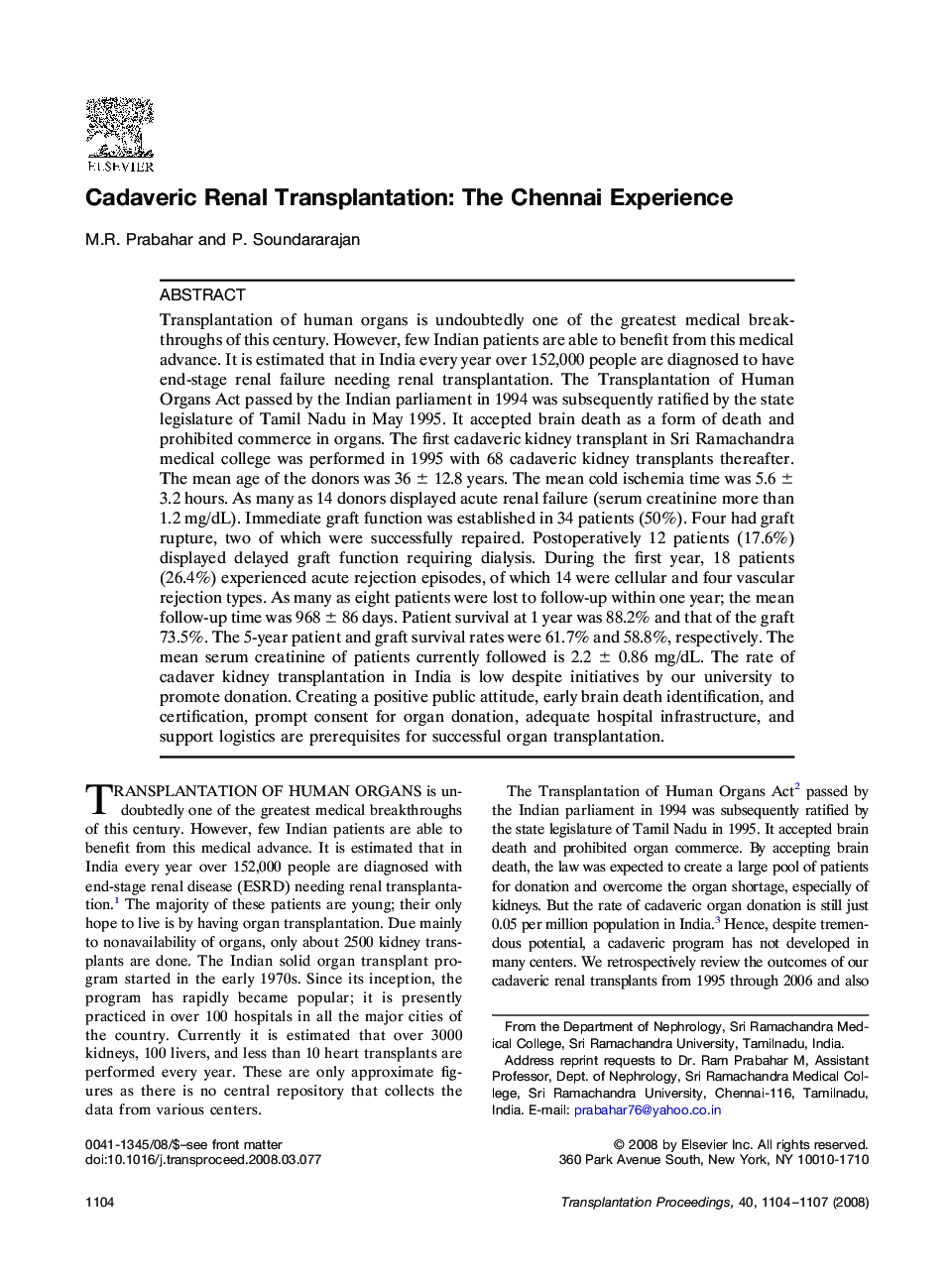| کد مقاله | کد نشریه | سال انتشار | مقاله انگلیسی | نسخه تمام متن |
|---|---|---|---|---|
| 4262116 | 1284602 | 2008 | 4 صفحه PDF | دانلود رایگان |

Transplantation of human organs is undoubtedly one of the greatest medical breakthroughs of this century. However, few Indian patients are able to benefit from this medical advance. It is estimated that in India every year over 152,000 people are diagnosed to have end-stage renal failure needing renal transplantation. The Transplantation of Human Organs Act passed by the Indian parliament in 1994 was subsequently ratified by the state legislature of Tamil Nadu in May 1995. It accepted brain death as a form of death and prohibited commerce in organs. The first cadaveric kidney transplant in Sri Ramachandra medical college was performed in 1995 with 68 cadaveric kidney transplants thereafter. The mean age of the donors was 36 ± 12.8 years. The mean cold ischemia time was 5.6 ± 3.2 hours. As many as 14 donors displayed acute renal failure (serum creatinine more than 1.2 mg/dL). Immediate graft function was established in 34 patients (50%). Four had graft rupture, two of which were successfully repaired. Postoperatively 12 patients (17.6%) displayed delayed graft function requiring dialysis. During the first year, 18 patients (26.4%) experienced acute rejection episodes, of which 14 were cellular and four vascular rejection types. As many as eight patients were lost to follow-up within one year; the mean follow-up time was 968 ± 86 days. Patient survival at 1 year was 88.2% and that of the graft 73.5%. The 5-year patient and graft survival rates were 61.7% and 58.8%, respectively. The mean serum creatinine of patients currently followed is 2.2 ± 0.86 mg/dL. The rate of cadaver kidney transplantation in India is low despite initiatives by our university to promote donation. Creating a positive public attitude, early brain death identification, and certification, prompt consent for organ donation, adequate hospital infrastructure, and support logistics are prerequisites for successful organ transplantation.
Journal: Transplantation Proceedings - Volume 40, Issue 4, May 2008, Pages 1104–1107